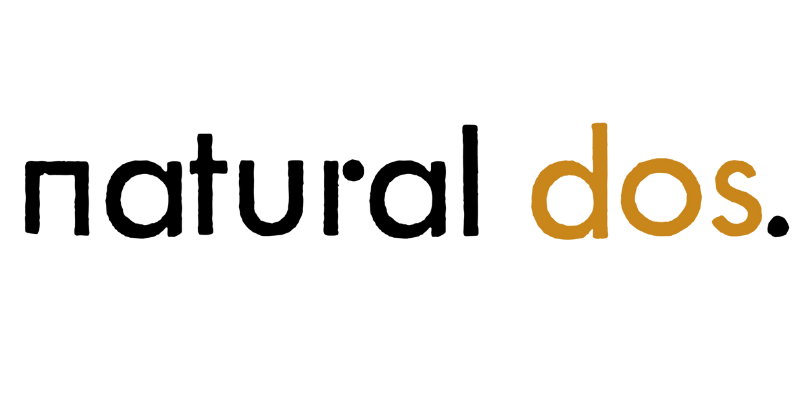
The world of cannabis-derived compounds can be a bit baffling and it can be intense, after all it's a space where everything is constantly changing. There is more and more research and awareness that grows around these dietary supplements. Plus, it's becoming even vital to get familiar with them.
Sure, most of us have heard all about cannabidiol (CBD). However, there's a bunch of other lesser-known compounds in a cannabis sativa plant. These other cannabinoids possess their own unique properties that are totally worth learning more.So, in this article, let’s venture beyond the super popular CBD. Read on to dive deep into the world of other cannabinoids - CBN, CBG, and CBDA. Since some of the compounds may be more important for you, it may be beneficial to understand the differences and similarities among these chemical compounds.
Calm, relaxing, ache free - while these are often associated with CBD oil, there may be better options for those in the know!
Let's kick off this journey together to uncover the mysteries of these intriguing natural compounds, all while discovering their potential benefits!
Article Highlight:
- We've heard all about CBD as it's the most famous cannabinoid from hemp plants that's known for potentially easing anxiety, pain, and inflammation. There's more to the cannabis world than just CBD
- Meet CBG, another cool cannabinoid with possible anti-inflammatory, antibacterial, and neuroprotective properties. It might even help with mood-related issues.
- Then there's CBN, another lesser-known gem that could work potentially as a sedative, help reduce inflammation, and improve sleep quality. It might even be useful for pain, anxiety, and seizures.
- Now, let's talk about CBDA, which is the raw form of CBD found abundantly in fresh cannabis plants. It also has some potential perks, like anti-inflammatory, anti-nausea, and superior absorption properties.
- What's amazing is that all these cannabinoids interact with our body's endocannabinoid system (ECS). Their impact on our bodies can vary depending on the specific compounds and the receptors they connect with.
What is CBD
We know that you've probably heard all about the famous CBD but still, let’s dig deep into it. CBD is short for cannabidiol, which is a natural compound found in after processing the cannabis plant. But you don't have to worry, it won't get you high or intoxicated like THC does when you consume marijuana.As you can see, CBD is actually well-known for its potential therapeutic benefits. It may help with anxiety, pain management, sleep, and inflammation. Some experts even think it could be good for exercise recovery and may help boost fertility!
What many people are not aware of is that you often need to take higher doses of CBD to get its full benefits. This can range from 200mg up to 1000mg per day!
CBD comes in a few different forms, for example you can find
- Full spectrum: contains all the cannabinoids found in the hemp plant including THC
- Broad spectrum: these are hemp oils that have removed THC, but tried to retain the other cannabinoids found in the plant
- CBD isolate type: some manufacturers like to isolate only the CBD into a powder which is easy for production, but you lose out on all the benefits of the other cannabinoids.
It's crucial to keep in mind that even though CBD is generally safe, it's not completely without risks. It could interact with some medications, so it's always good to consult a healthcare professional before you use CBD products. That way, you can make sure it's safe for you and avoid any potential problems.
CBG: The "Mother" Cannabinoid with a Range of Health Benefits
The "mother" of other cannabinoids.
If you've been in a CBD shop, no doubt you've seen the CBD alternative called Cannabigerol, or CBG.
Known as the starting compound for all other cannabinoids, it is often in low abundance compared to CBD, and requires special strains to get enough of it to make a therapeutic dose.
What do we do with CBG?
The community has been testing CBG for a couple different properties that show promise:
- It may have anti-inflammatory effects,
- Some indication for antibacterial properties,
- And potential positive interactions with the immune system.
- Uplifting mood effectiveness
So, CBG is combined with other cannabinoids, especially CBD, to produce a more potent and efficient therapeutic effect. However, research on CBG remains in its infancy.
Yet, this compound holds promise as a potential treatment option for patients suffering from various health conditions.
CBN: A Lesser-Known Cannabinoid with Promising Health Benefits
A well known CBD alternative in the cannabis community is Cannabinol or CBN.CBN is like the quieter sibling of THC and CBD, but it still has some fantastic potential benefits. Like CBG, CBN is not usually found in large amounts in most strains of hemp or marijuana.
However, you might find more of it in older or exposed-to-air cannabis, since THC can degrade into CBN.
CBN has been getting some buzz for its potential to help with things like relaxation and sleep aid.
To make it even more effective, people often combine CBN with other cannabinoids, especially CBD. Although there's still a lot of research that needs to be done, it seems like CBN could also be a promising treatment option for all sorts of conditions and ailments.
CBDA: The Raw Form of CBD with Potential Health Benefits
You know about CBD, but have you heard of its cousin, CBDA (cannabidiolic acid)?
CBDA is actually a natural acidic precursor to CBD, and it's found abundantly in raw cannabis plants. Usually, when you heat up the plant material, CBDA converts into CBD in a process called decarboxylation.
But get this: recent research is showing that CBDA might have some health benefits of its own, which is pretty amazing.
So there is evidence from a study which suggests that CBDA could be helpful in alleviating inflammation, chronic pain, and nausea. Plus, it is thought that CBDA could be used to fight cancer, but there's still a lot more work to be done on that front.
New research has found that it is more potent than CBD as it is more bioavailable than the later. In fact, the CBDA enhanced absorption is over 450% more than CBD by the body.
It's important to note that CBDA isn't widely available as a supplement or medication.
How to you find quality CBDA products
Look no further than Natural Dos!
All of our CBDA products come with the full range of acidic cannabinoids, Natural Spectrum CBDA, leading to great absorption and benefits!
Every product is testing by a third party testing lab, and all come with a 100% money back guarantee.
If you're interested in exploring its potential benefits, it's a good idea to talk to a healthcare professional or cannabis expert first.
How Do Cannabinoids Work
Well, cannabinoids are a group of compounds that interact with the endocannabinoid system (ECS) present all over the human body.The ECS is a complex network of receptors that regulates lots of different body functions, such as mood, hunger, pain, and immune response.
So when you consume cannabinoids, they interact with the cannabinoid receptors in your body’s ECS, mainly with the CB1 and CB2 receptors. The CB1 receptors are mostly present in the brain and central nervous system. On the other hand, the CB2 receptors are found more in the immune system and peripheral tissues.
The effects of the cannabinoids on our bodies depend on two factors. First, what specific compounds are consumed and second, which receptors they interact with. For instance, CBD (cannabidiol) interacts with CB2 cannabinoid receptors throughout the body that are associated with pain, mood, and inflammation.
Cannabinoids, like CBG (cannabigerol), CBN (cannabinol), CBDA, and other compounds, also interact with the ECS and receptors in unique ways. They could potentially provide therapeutic benefits for different health issues.
Finally, the relationship between the cannabinoids you consume and the endocannabinoid system is really important for regulating all sorts of physiological processes in our bodies. But what's more important to note is that more research is needed to fully understand the safety and potential healing properties of these natural alternatives.
Tips on Choosing Similar Stuff to CBD
So, you're thinking about trying some cannabinoid-based products, huh? Well, let me give you a few tips to make sure you find the right one for your needs.First off, you'll want to find a product that's been third-party tested, termed a Certificate of Analysis (CoA). This means an independent lab has checked it out and confirmed the number of cannabinoids and that it's free from any nasty contaminants.
But what should you look for in the testing?
- Potency: are the cannabinoids listed on the label also what was found in the test?
- Pesticides: while its not legal to use pesticides for hemp, sometimes there are residuals in the soil that get soaked up into the plant.
- Heavy metals: these are common throughout many soils across the US, and include common names like mercury, arsenic or cadmeium.
- Residual solvents: while not commonly found anymore, its important to make sure that no chemicals remain in the final product that were during manufacturing.
- Microbials: bacteria and mold love to eat the same food we do, so its important to check for harmful strains.
You should also consider what you're looking to achieve with the product. For example, CBDA is great for pain relief and easing anxiety, is the most potent CBD alternative on the market. Combining the two may even make CBDA absorption even better!
Maybe CBN dominant would be good for your sleep problems?
As for how to consume these products, there are loads of options like oils, capsules, topicals, and even edibles. Pick a method that suits your needs and preferences.
Don't forget to do your research on the companies too. Look for ones that have a solid reputation when it comes to quality and customer service. Check out online reviews to see what other people think of their products. The best companies will be open about where they source their hemp and how they make their products.
Before diving into the world of cannabinoids, have a chat with a healthcare professional, especially if you're on other medications or have any health concerns. They'll help you figure out if it's safe for you and suggest a dosage.
And remember, everyone's different, so what works for one person might not work for you. Don't be afraid to experiment a little to find the perfect product for your unique needs. Just be patient and give it some time – you'll find the best fit for you soon enough!
Conclusion
You know, it's pretty amazing how many different cannabinoids are out there! We've all heard about CBD and its therapeutic properties, but did you know it has some lesser-known cousins like CBN, CBG, and CBDA? Each of these unique cannabinoids has its own set of benefits, and when they team up, they can really boost our holistic wellness journey.
As we keep learning more about what these compounds can do, it's super important for us to stay informed and be open to giving them a try. By exploring the whole cannabinoid family, we can deepen our understanding of how they work with our bodies and maybe even get better results.



